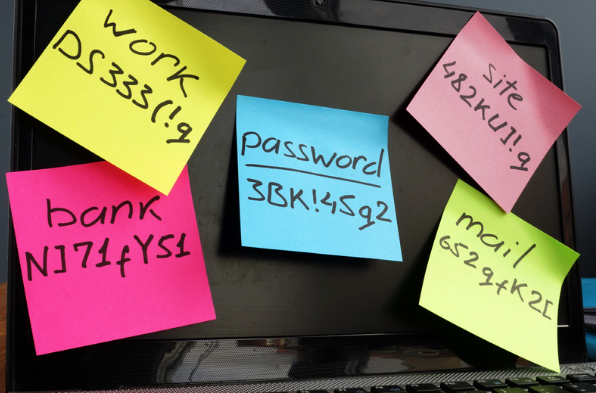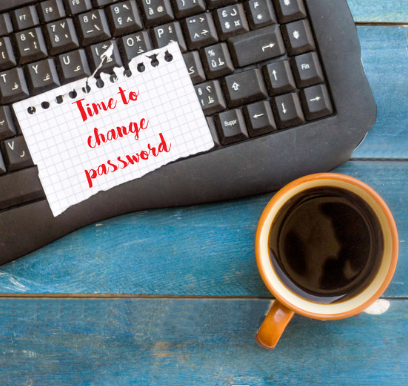How to Create a Secure Password: Essential Tips for Choosing a Strong Password That Will Keep Your Data Safe
Posted by iCoverLover on Apr 16, 2023
We have been using the internet for close to five decades now, yet many of us have not learned our lesson regarding online passwords. Studies have shown that the most common passwords on the web are “password” and “12345”. Yes, they are easy to remember, but it is also easy to hack these passwords.

Nowadays, using secure and unique passwords is inevitable if you want to protect your data. Strong and unique passwords are always the first line of defence when miscreants around the world gain access to user accounts.
In this article, you will find some useful tips for creating a strong password. These tips will help you create passwords that would be difficult to hack. Read on to get the full details.
Tips for Choosing a Strong Password
A good password is complex, long enough and cannot be easily guessed. When creating a password, you should consider the following characteristics of good and secure passwords to deter hackers.
Make your password long
Hackers deploy different methods to hack your passwords and gain access to your accounts. They manually try symbols, numbers, and letters to presume your password.
A brute force attack is the most advanced method to hack your password. It is a technique where a computer program is used to crack your password by combining letters, symbols, and numbers.
If you have a long and complex password, it becomes difficult for the program to crack your password. Passwords with three characters are easily cracked in less than a second. Therefore, password length is one of the things people should definitely consider.
Be creative when creating passwords
While it is good to make your passwords long, you must ensure they include phrases and words. Use words not found in the dictionary or phrases that won’t be found in any literary works. It is recommended you use at least two or several semantically unrelated words, which should be separated by a number, an additional letter and a punctuation mark, use lowercase and uppercase letters and also include the characters [ ] ( ) ! _ . # -, etc. Following this tip makes it difficult for hackers to crack your password.
Anyone who does not leave the creation and entry of passwords to software should have a uniform way of creating password variations for each account. It can be a specific basis (word, combination of words, random sequence of letters or characters) with a permutation of punctuation marks and numbers for each account.
Include symbols, numbers, uppercase, and lowercase letters
As mentioned above, try to mix up a combination of numbers and letters with symbols when creating a password. For instance, you can add a hyphen, question mark, percentage sign, dollar sign, and quotation marks to a word when creating your password. If you must use a phrase, ensure that the first and last letters are capitalized.
Don’t use your personal information
You should avoid the use of personal information when creating your password. Don’t use your pet’s name, relatives’ name, date of birth, mother’s name, father’s name, high school name, address, anniversary, or anything personal.
Don’t reuse the password on other accounts when one is compromised
Different passwords are absolutely necessary, especially if they are tied to the same email address. Because a possible break-in at a certain provider can mean that attackers who would get hold of the data simply try to enter other services, not only the one from which they stole the login database.
Granted, these are usually encrypted and difficult to actually get hold of, but it's still better to be safe than sorry. We often learn about an attack only after some time, and in the meantime, a disaster can already happen.
Even if you have one password for a specific type of service, it's still better than using a single password everywhere. In such a case, it would have to be changed as soon as possible at a maximum of ten locations. With a single password, there would be much more work and time required.

Use a password manager
Using a password manager will save you from future heartaches. A password manager is a service that generates strong passwords automatically and safely stores them for you.
These passwords are encrypted, and you need a master password to access them.
Password managers audit your account, ensuring you are not using the same password across different accounts. Make sure you don’t lose the master password. Some of these services are free, while you have to pay for others.
Keep your password secret
Don’t ever give your password out to anyone, no matter how much you trust them. Avoid typing your password into a device you don’t own. If you must do so, always click “don’t remember my password” after entering your password.
Change passwords frequently

Change your passwords frequently. This helps you to stay ahead of hackers.
Use additional security offered by websites and apps
Many services offer the option of two-level authentication (2FA), where, in addition to the password, a confirmation SMS, confirmation on the phone or something else can be used for an additional level of protection.
BONUS TIP: Clean your phone screen regularly
When typing the password to unlock the phone, fingerprints are left behind. Clean the screen regularly and use a PIN code where at least one number is repeated at least once.
When entering passwords, we pay attention that no one is looking at the keyboard or the mobile phone screen. Passwords can be identified by observation. Mobile phone users who use a pattern to unlock should be careful to wipe the screen every now and then, as it leaves a (greasy) mark left behind by our fingers.
Conclusion
Short passwords can compromise your data. As such, you must think outside of the box when choosing passwords. Strong passwords ensure you are safe online. Do not use passwords that are easy to guess, i.e. first names, surnames, children's names, date of birth or combinations of these data. Simple and short passwords are to be avoided. Do not use consecutive letters or numbers and also do not use adjacent keys on the keyboard, for example, 123456 or qwerty, etc. Also, try to avoid the words "from dictionaries", domain names or parts of the email address string, etc. Keep in mind "what is easy for me is also easy for the hacker". Use different passwords for different login accounts. Using one password for email, other user accounts and social networks can potentially lead to identity theft.
